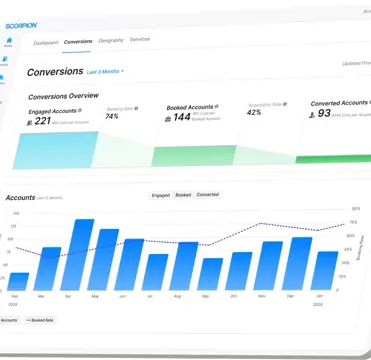Online Reviews for Franchises
Online reviews are vital for franchises
Asking friends and family for recommendations used to be the go-to move for anyone looking for new products or services. But in the last fifteen years, online reviews and ratings have become the new heavyweight source of information for consumers. In fact, according to BrightLocal, 72% of customers will not buy anything until they read some reviews.
Here are some other statistics showing just how important reviews and ratings can be for businesses:
- 70% of consumers trust online reviews and articles more than advertisements when they want information about a business. (Statista)
- 70% of all users need to read at least four reviews before trusting a business. (Deloitte)
- One disappointed customer will share their negative experience with 9 - 15 people. (Oracle)
For many franchise owners, getting positive reviews and ratings can seem unpredictable and feel out of your hands. However, there are several best practices and platforms to be aware of that will help ensure potential customers are getting an accurate portrayal of your business and hearing from your fans as well.
Which review platforms should franchises pay attention to?
While there are dozens of review sites and platforms available, knowing where your customers are really turning to will help you prioritize your online reputation efforts effectively. Aside from industry-specific sources, such as for home services and medical practices, the main review platforms a majority of consumers turn to are Google My Business, Facebook, and Yelp.
Here’s a breakdown of how often these sites are used (according to Review Trackers):
63.6% of users check Google reviews
45.18% visit Yelp for reviews
23.14% look at Facebook reviews
How are these review platforms different from each other?
Google My Business (GMB): Google My Business stands out as the frontrunner among review sites with their reviews accounting for 57.5% of all reviews globally. As a trusted and well-known brand, consumers generally value the information they’re getting from Google. And because GMB exists within the Google ecosystem, it’s connected to Google’s other consumer-centric products, Google Search and Google Maps. Having a well-established (and free) GMB profile can help your business get more organic visibility from both Search and Maps, which is why it’s crucial to create or claim your listing and make sure its information is accurate and complete. With so much organic reach, Google can be a huge boon by increasing virtual and foot traffic to your business.
Facebook: As the world’s largest social media platform, Facebook helps your business be where your customers are spending a lot of their time online. However, because it’s first and foremost a social platform, there is both a greater opportunity and expectation for businesses to engage with customers. You can share posts, interact with people in comments, and respond to direct messages—all of which can help build relationships with prospects and customers. The challenge here is that not engaging with or hastily responding to customers on Facebook can be detrimental to your business.
Yelp: Unlike the other two companies mentioned, Yelp is focused predominantly on reviews. Oftentimes, a Google search for a service or product in your area might not show your business, but will show the Yelp results page for local businesses like yours. Because Yelp is so focused on reviews, they can be a double-edged sword for your company. Good reviews can be a great boost while bad reviews can turn away potential customers. Addressing reviews, both good and bad, is vital so readers know you’re paying attention to them.

Online review basics for franchises
Creating or claiming your business profile on review platforms is the first step to collecting reviews and ratings for your company. Sometimes, platforms like Yelp will allow users to create a profile for a company they’ve done business with, so instead of creating one from scratch, you may want to claim an existing profile. Franchise corporate offices often have tools that allow you to manage all your review listings in one place, so check with your home offices. In either case, no matter which platform it is, here’s a checklist of the most important information your profile should have upon setup:
NAP (Name, Address, Phone Number): Ensure your company details are accurate, including business name, address, and phone number. These details not only help customers reach the right company, they also give your company’s search engine rankings a boost since they’re often referred to as a source of business information.Business Hours: Keep your business hours updated so customers don’t get frustrated by calling or visiting when you’re closed. This is especially important around holidays or occasions you may be closed for.
Business Category: Make sure your business category is accurate so customers don’t stumble upon you when they’re actually looking for something else. When given the opportunity, be as specific as possible and list all the products and services you may provide. Don’t forget to update this if you change the scope of your business so customers don’t have a bad experience.
Photos and Videos: Make a great first impression with brand-approved photos and videos of your business. While smartphones can capture decent images nowadays, having well-produced photos and videos that are properly edited will show that you’re professional and business-worthy. Aside from capturing shots of your facilities and equipment, add photos that showcase your team and brand so customers can get a sense of what kind of business you are.
“About Us” Description: Aside from talking about what your business sells or does, stand out from the crowd by giving potential customers an idea of what makes your company unique. In an era where consumers want more than doing business with a generic company, this is a good opportunity to talk about what your brand stands for and believes in.
Now that you have an idea of online review basics, let’s take a look at some best practices of what to do and what not to do in part two of our blog series on online reviews.






.0000000000000.jpg)